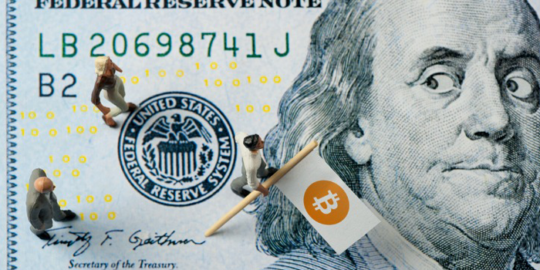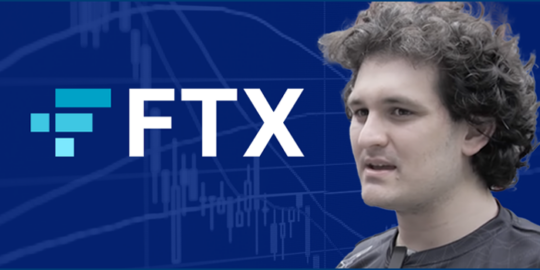It’s no secret Bitcoin dominates the cryptocurrency space.
Millions of people around the world have used it. And it’s still the only coin most people have heard of. Unfortunately, Bitcoin’s popularity also means there’s a good bit of misinformation surrounding the crypto.
To fans, Bitcoin is the catalyst that will free consumers from the financial oversight and penalties of big banks and government. The ultimate “anonymous, decentralized, peer-to-peer payment network”…
But there’s something most Bitcoin users don’t realize… or fully appreciate…
Bitcoin transactions are 100% public.
That’s right… Bitcoin’s blockchain is completely transparent. Anyone can look at it and see every Bitcoin transaction in history. Transparency comes at the expense of privacy.
To some folks, this is a good thing. In theory, it’s harder for people to get ripped off when every transaction happens in public view. But this hasn’t stopped hackers from stealing millions of dollars’ worth of Bitcoin over the years…
Every Bitcoin transaction involves a sender and receiver. When the transaction is made, it becomes part of Bitcoin’s blockchain. The blockchain doesn’t show the identities of the participants… but it shows a certain amount of Bitcoin was sent from one Bitcoin address to another. Those addresses can be tracked…
We live in an age where big tech companies track all our data. And it’s easy to underestimate how much of our personal information is out there.
For example, Facebook creates “shadow profiles” for people who don’t set up their own account on the platform. That means anyone who thinks they’re not on Facebook is likely wrong. If their friends mentioned or posted a picture of them on the site, Facebook has already created a profile with their info.
Bitcoin’s transparency creates a similar problem, since addresses and transaction amounts are 100% public.
Imagine you go to dinner with a friend and they pick up the check. To repay them, you send them some Bitcoin. The blockchain records the transaction. No big deal, right?
Well… since you know your friend’s Bitcoin address, you can go to any blockchain explorer and look up all the information related to that address.
Thanks to the public blockchain, you can learn a lot about your friend. You can see every transaction they’ve ever made from that address, including:
- Every address they’ve ever sent Bitcoin to
- Every address they’ve ever received Bitcoin from
- The amount of Bitcoin associated with their address
For most people, it’s shocking to realize Bitcoin balances are public information. (If you’re curious, you can even check out the 100 richest Bitcoin addresses in the world.)
To be fair, it’s not hard to protect your information. Your friend could give you a one-time “receiving address” to make it harder to track you. Bitcoin.org offers some good advice for Bitcoin users:
Bitcoin addresses should only be used once and users must be careful not to disclose their addresses… To protect your privacy, you should use a new Bitcoin address each time you receive a new payment. Additionally, you can use multiple wallets for different purposes. Doing so allows you to isolate each of your transactions in such a way that it is not possible to associate them all together.
Nevertheless, you can see why many people believe Bitcoin has a major privacy problem.
I’ve used Bitcoin. I wish I could say it’s impossible for anyone (including the government) to connect my public Bitcoin address with my identity.
But it’s probably not that hard.
Between my personal and business life, I’ve filled out a ton of paperwork over the years. All that information is in the hands of regulatory agencies and financial companies. And most expert hackers can get access to this information if they really want to.
Plus, there’s another group of companies with a ton of useful information on connecting people to their Bitcoin addresses, including exchanges like Coinbase, Binance, Bitfinex, and others. At a minimum, you must provide your name, address, and phone number in order to set up an account at most exchanges.
These exchanges are also legally required to share information with governments and regulatory agencies.
There are already a handful of companies that specialize in tracking down the identity of cryptocurrency users. The IRS uses a company called Chainalysis to track down people who don’t pay taxes on their crypto profits.
I don’t want to go too far into the details here. And some readers may not care much about these privacy issues at all. (Personally, I’m not trying to hide anything from the IRS. I’d be annoyed if everyone knew my Bitcoin address… and don’t want everyone to see exactly how much cryptocurrency I own… but it wouldn’t be a devastating event.)
But with the rise of social media and tracking technology (aka “Big Data”), more and more of our personal information is being collected every year, and our privacy is becoming increasingly scarce.
Billions in fines have already been levied by governments for privacy violations… everything from Facebook, to banks, to Bitcoin wallets has been compromised.
Balancing transparency and privacy in cryptos isn’t easy. But transparency also means being honest about the flaws or weaknesses in a product. Unless the crypto industry becomes more proactive in addressing its shortcomings, the breaches and hacks will continue…
Frank Curzio,
founder and CEO of Curzio Research, is one of America’s most respected stock experts. His research is regularly featured on media outlets like CNBC’s Kudlow Report, The Call, CNN Radio, ABC News, and Fox Business News. His weekly
Wall Street Unplugged podcast—ranked the No. 1 “most listened-to” financial podcast on iTunes—has been downloaded over 12 million times.
Editor’s note: Frank’s Crypto Intelligence members are on the front lines of the best ideas in the crypto market… Including warnings and advice on industry privacy and security.
In fact, Frank recommended a coin that solves Bitcoin’s privacy problem—a feature that could lead to mass adoption… and 500%+ upside.
Click here to learn how to access to this name—as well as other incredible under-the-radar opportunities in this explosive market.
Frank Curzio,
founder and CEO of Curzio Research, is one of America’s most respected stock experts. His research is regularly featured on media outlets like CNBC’s Kudlow Report, The Call, CNN Radio, ABC News, and Fox Business News. His weekly
Wall Street Unplugged podcast—ranked the No. 1 “most listened-to” financial podcast on iTunes—has been downloaded over 12 million times.










It’s no secret Bitcoin dominates the cryptocurrency space.
Millions of people around the world have used it. And it’s still the only coin most people have heard of. Unfortunately, Bitcoin’s popularity also means there’s a good bit of misinformation surrounding the crypto.
To fans, Bitcoin is the catalyst that will free consumers from the financial oversight and penalties of big banks and government. The ultimate “anonymous, decentralized, peer-to-peer payment network”…
But there’s something most Bitcoin users don’t realize… or fully appreciate…
Bitcoin transactions are 100% public.
That’s right… Bitcoin’s blockchain is completely transparent. Anyone can look at it and see every Bitcoin transaction in history. Transparency comes at the expense of privacy.
To some folks, this is a good thing. In theory, it’s harder for people to get ripped off when every transaction happens in public view. But this hasn’t stopped hackers from stealing millions of dollars’ worth of Bitcoin over the years…
Every Bitcoin transaction involves a sender and receiver. When the transaction is made, it becomes part of Bitcoin’s blockchain. The blockchain doesn’t show the identities of the participants… but it shows a certain amount of Bitcoin was sent from one Bitcoin address to another. Those addresses can be tracked…
We live in an age where big tech companies track all our data. And it’s easy to underestimate how much of our personal information is out there.
For example, Facebook creates “shadow profiles” for people who don’t set up their own account on the platform. That means anyone who thinks they’re not on Facebook is likely wrong. If their friends mentioned or posted a picture of them on the site, Facebook has already created a profile with their info.
Bitcoin’s transparency creates a similar problem, since addresses and transaction amounts are 100% public.
Imagine you go to dinner with a friend and they pick up the check. To repay them, you send them some Bitcoin. The blockchain records the transaction. No big deal, right?
Well… since you know your friend’s Bitcoin address, you can go to any blockchain explorer and look up all the information related to that address.
Thanks to the public blockchain, you can learn a lot about your friend. You can see every transaction they’ve ever made from that address, including:
For most people, it’s shocking to realize Bitcoin balances are public information. (If you’re curious, you can even check out the 100 richest Bitcoin addresses in the world.)
To be fair, it’s not hard to protect your information. Your friend could give you a one-time “receiving address” to make it harder to track you. Bitcoin.org offers some good advice for Bitcoin users:
Nevertheless, you can see why many people believe Bitcoin has a major privacy problem.
I’ve used Bitcoin. I wish I could say it’s impossible for anyone (including the government) to connect my public Bitcoin address with my identity.
But it’s probably not that hard.
Between my personal and business life, I’ve filled out a ton of paperwork over the years. All that information is in the hands of regulatory agencies and financial companies. And most expert hackers can get access to this information if they really want to.
Plus, there’s another group of companies with a ton of useful information on connecting people to their Bitcoin addresses, including exchanges like Coinbase, Binance, Bitfinex, and others. At a minimum, you must provide your name, address, and phone number in order to set up an account at most exchanges.
These exchanges are also legally required to share information with governments and regulatory agencies.
There are already a handful of companies that specialize in tracking down the identity of cryptocurrency users. The IRS uses a company called Chainalysis to track down people who don’t pay taxes on their crypto profits.
I don’t want to go too far into the details here. And some readers may not care much about these privacy issues at all. (Personally, I’m not trying to hide anything from the IRS. I’d be annoyed if everyone knew my Bitcoin address… and don’t want everyone to see exactly how much cryptocurrency I own… but it wouldn’t be a devastating event.)
But with the rise of social media and tracking technology (aka “Big Data”), more and more of our personal information is being collected every year, and our privacy is becoming increasingly scarce.
Billions in fines have already been levied by governments for privacy violations… everything from Facebook, to banks, to Bitcoin wallets has been compromised.
Balancing transparency and privacy in cryptos isn’t easy. But transparency also means being honest about the flaws or weaknesses in a product. Unless the crypto industry becomes more proactive in addressing its shortcomings, the breaches and hacks will continue…
Editor’s note: Frank’s Crypto Intelligence members are on the front lines of the best ideas in the crypto market… Including warnings and advice on industry privacy and security.
In fact, Frank recommended a coin that solves Bitcoin’s privacy problem—a feature that could lead to mass adoption… and 500%+ upside.
Click here to learn how to access to this name—as well as other incredible under-the-radar opportunities in this explosive market.